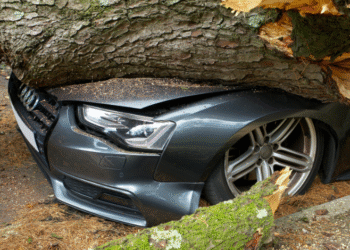Stay informed on Tennessee Virginia vape laws, learn age limits, restrictions, and legal updates for safe vaping compliance.
When I first started driving between Tennessee and Virginia for work, I never thought I’d need to double-check something as simple as whether I could vape legally in both states. Yet one quick stop at a vape shop in Bristol proved otherwise. The shop on the tennessee virginia vape laws side sold my favourite flavoured pods with no issue. But once I crossed into Virginia, the store clerk shook his head and pointed to a new rule about a product directory. That experience showed me how different vape laws can be, even between neighbouring states.
If you vape, sell vape products, or just want to understand the law before traveling, this guide will walk you through how Tennessee and Virginia compare in 2025. I’ve laid out the major differences in age limits, taxes, sales rules, and enforcement so you can easily understand what applies where.
Tennessee Virginia Vape Law Comparison Table
| Legal Aspect | Tennessee | Virginia |
| Legal vaping age | 21+ | 21+ |
| Indoor vaping laws | Prohibited in enclosed public spaces | Limited restrictions; varies by locality |
| Flavour ban | No statewide ban | No statewide ban but new product directory limits certain products |
| Vape tax | 10% wholesale on open systems and $0.07/mL on closed systems | $0.11/mL excise tax on liquid nicotine |
| Online sales | Allowed with age verification and signature on delivery | Restricted to licensed retailers with verification |
| Retail licensing | No specific license yet; must register under new directory system | Certification and product directory required |
| Penalties for violations | Civil fines and seizure of illegal products | Civil fines escalating from $1,000 to $10,000 plus license suspension |
Why Vape Laws Matter in Tennessee and Virginia
At first regard, tennessee virginia vape laws appear to have analogous vaping laws. Both countries follow the civil rule that restricts deals to people 21 and aged. But once you look closer, their approaches differ in how they handle retail licensing, product enrollment , and penalties.
Understanding these laws matters for several reasons. Vape shop owners must know what products they can legally sell. Consumers should understand what’s allowed in public places and what products may become restricted. And anyone who buys online should know that rules around shipping and verification are tightening in both states.
Age Requirements and Purchase Rules
Both Tennessee and Virginia set the minimal vaping age at 21. In tennessee virginia vape laws anyone who sells or distributes vapor products to a person under 21 can face forfeitures and legal penalties. Retailers are also needed to check identification for anyone who looks youngish than 50. The idea is to help underage deals before they are.
Virginia’s rule is analogous, but the state has added stronger penalties for reprise malefactors. Retailers must check identification for anyone appearing under 30. A first violation can result in a$ 1,000 forfeiture, and fresh offenses can lead to forfeitures as high as$ 10,000 or indeed temporary license suspensions.
From a customer’s perspective, the rules feel almost identical, but from a seller’s point of view, Virginia takes a much stricter stance. I once spoke to a store owner in Abingdon who told me that one mistaken sale to a minor could put his entire business at risk. He wasn’t exaggerating.
Where You Can and Cannot Vape
In Tennessee, vaping is treated much like smoking under the state’s Non-Smoker Protection Act. That means you can not vape inside enclosed public spaces similar to workplaces, caffs, or government structures. Indeed bars and music venues have espoused bank-free programs that now include e-cigarettes. The rules are straightforward and easy to follow.
Virginia’s situation is less clear- cut. The state’s Clean Inner Air Act primarily targets smoking, and it does not automatically include vaping in every position. This has created a patchwork of original programs. Some metropolises and private businesses explicitly ban vaping indoors, while others allow it at their discretion. As a result, a person can fairly vape inside a small- city café but not in a megacity eatery one county down.
If you’re traveling through Virginia, it’s best to check for posted signs or ask before using your device indoors. Even though there’s no blanket ban, many property owners have chosen to adopt their own restrictions.
Retail Licensing and Online Sales Rules
Tennessee has recently introduced a registration and product directory system. By January 2026, the state will publish a directory of vapor products that are approved for sale. Retailers will only be allowed to sell products listed there starting January 2027. Any product not listed after enforcement begins will be considered illegal to sell.
Unlike Virginia, tennessee virginia vape laws does not yet require retailers to obtain a special vape license. However, distributors and online sellers must verify the buyer’s age, collect signatures upon delivery, and confirm that all sales comply with federal shipping laws.
Virginia’s system is much more formalized. Beginning July 2025, all manufacturers must certify their products and have them listed in the Virginia Attorney General’s directory. After December 31, 2025, unlisted products cannot be sold anywhere in the state. Internet and mail-order sales are also heavily restricted. Only licensed retailers can ship products to individual buyers, and every order must include age verification.
This means that a Tennessee vape shop may have a simpler time managing inventory, while a Virginia retailer will face stricter paperwork and potential product bans if manufacturers fail to meet state certification requirements.
Vape Taxes and Pricing Differences
One of the biggest practical differences between the two states comes down to taxes. Tennessee imposes a 10 percent wholesale excise tax on open-system vapor products and a seven-cent-per-milliliter tax on closed-system products such as pre-filled pods.
Virginia’s excise tax is set at eleven cents per milliliter for liquid nicotine. While that might sound minor, it quickly adds up. A 60-milliliter bottle of vape liquid costs an additional $6.60 in taxes before retail markup.
From a consumer’s viewpoint, this means you are likely to find higher prices for the same products in Virginia than in Tennessee. I noticed this personally when comparing receipts from vape stores on both sides of the border. Tennessee’s tax structure keeps prices a bit lower, though both states have clearly moved toward taxing vaping similarly to traditional tobacco.
Penalties and Enforcement
Tennessee enforces most of its vaping laws through civil penalties. Selling to minors, failing to verify age, or offering unregistered products can lead to fines or seizure of illegal goods. Retailers who repeatedly violate the law may face business restrictions.
Virginia uses a tiered enforcement approach. A first violation within 36 months brings at least a $1,000 fine. The second violation can cost $5,000, and the third may reach $10,000 along with a 30-day suspension of the retailer’s license. Virginia regulators also have the authority to revoke a license entirely after repeated violations.
For small business owners, that difference matters. Tennessee’s penalties are moderate and typically administrative. Virginia’s can be financially devastating for a shop caught in violation multiple times.
Key Differences Between Tennessee and Virginia
Although the two states share the same minimum age rule and both are adding product directories, several distinctions stand out.
- Virginia’s certification deadlines are sooner, with full enforcement by the end of 2025, while Tennessee’s takes effect in 2027.
- Tennessee’s indoor restrictions are broad and consistent, while Virginia’s depend on location and individual policies.
- Virginia’s excise tax per milliliter is higher than Tennessee’s, making vaping more expensive overall.
- Online sales are easier to conduct legally in Tennessee, provided age verification and signature requirements are met.
- Virginia enforces its penalties more aggressively and imposes higher fines.
These differences may seem small on paper, but they significantly affect consumers and businesses operating in both states.
2025 Updates and Future Legal Trends
Both Tennessee and Virginia are tightening control over vape sales through directory systems that limit which products can be sold legally. These directories are designed to align with federal Food and Drug Administration marketing authorizations, meaning only products approved by the FDA will likely remain on shelves after the enforcement dates.
Tennessee’s new legislation, known as Senate Bill 763 and House Bill 968, establishes its product directory with enforcement beginning in 2027.
Virginia’s Senate Bill 550 and House Bill 1069, however, require compliance one year earlier. Starting July 2025, manufacturers must certify all products and list them in the state directory. After December 2025, selling anything not listed becomes illegal.
Many experts predict that both states will eventually restrict flavored products further, especially disposable vapes that are popular with young users. Retailers should stay informed, as rules are changing rapidly.
Frequently Asked Questions
Is vaping in public legal in Tennessee?
No. Vaping is prohibited in enclosed public spaces, including restaurants, workplaces, and entertainment venues.
Can you buy flavored vapes in Virginia?
Yes, but only until the end of 2025 unless the product appears in the state’s approved directory.
Do vape retailers need a license in Tennessee?
There is no special license required yet, but sellers must comply with new product registration and directory rules starting in 2026.
What are the penalties for selling to minors in Virginia?
The fines start at $1,000 and can increase to $10,000, along with possible license suspension for repeat offenses.
Are disposable vapes banned in Tennessee?
Not directly, but many could become illegal if not registered in the upcoming state product directory.
Final Thoughts and Takeaway
Both Tennessee and Virginia aim to balance public health enterprises with fair business regulation. Their laws partake in numerous parallels but differ in how rigorously they apply compliance.
To epitomize, both countries set the minimum vaping age at 21, bear age verification for all deals, and regulate product deals through directories. Tennessee applies harmonious inner restrictions and has slightly lower levies. Virginia, on the other hand, has a briskly instrument timeline, an advanced duty rate, and stricter enforcement.

















